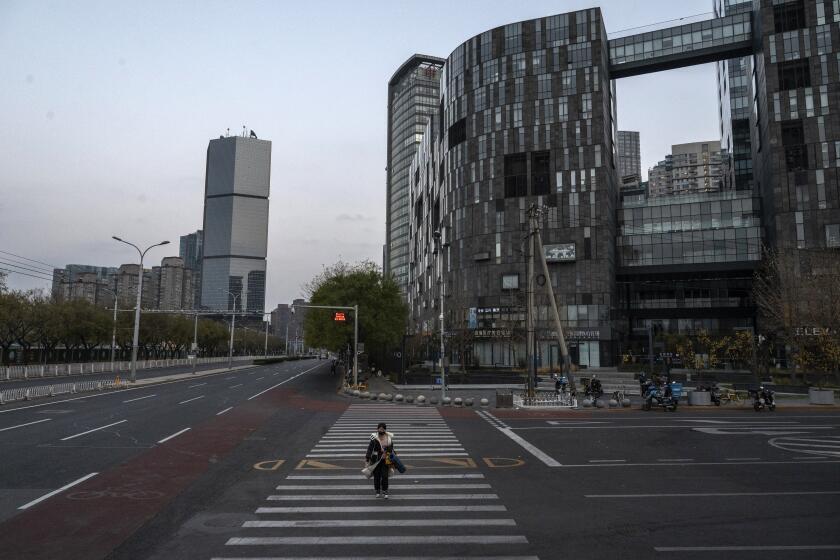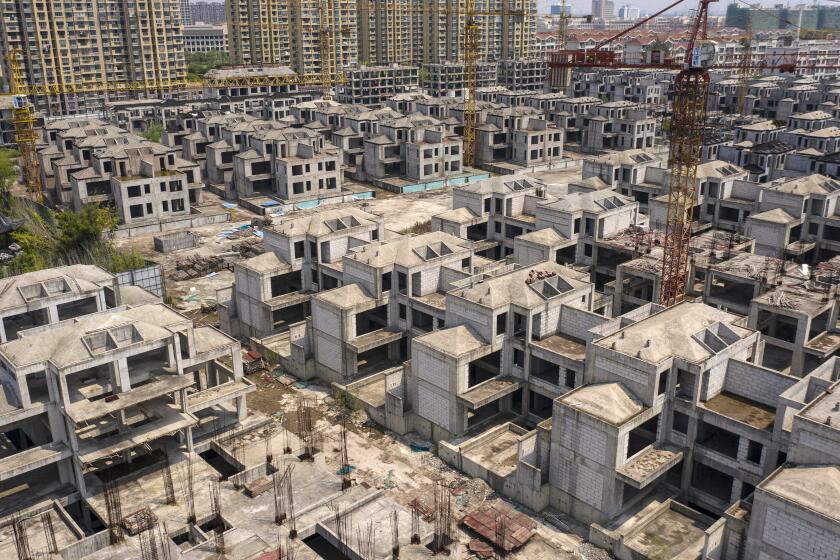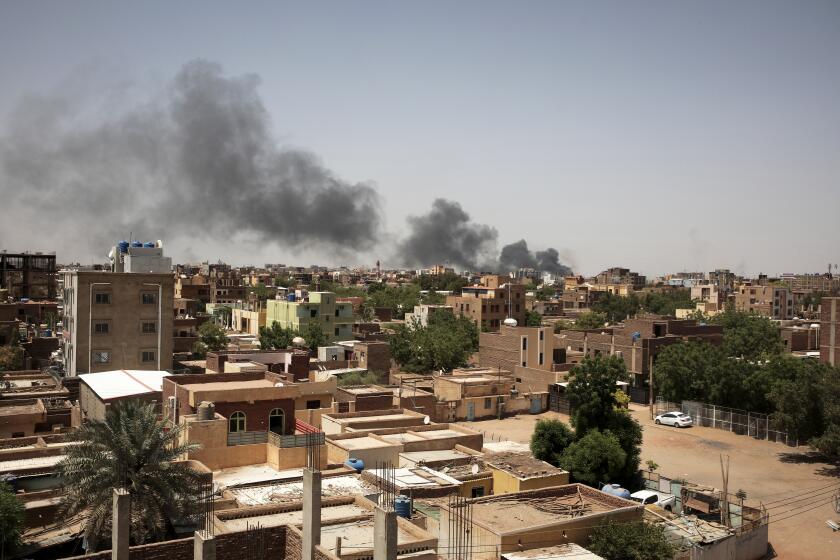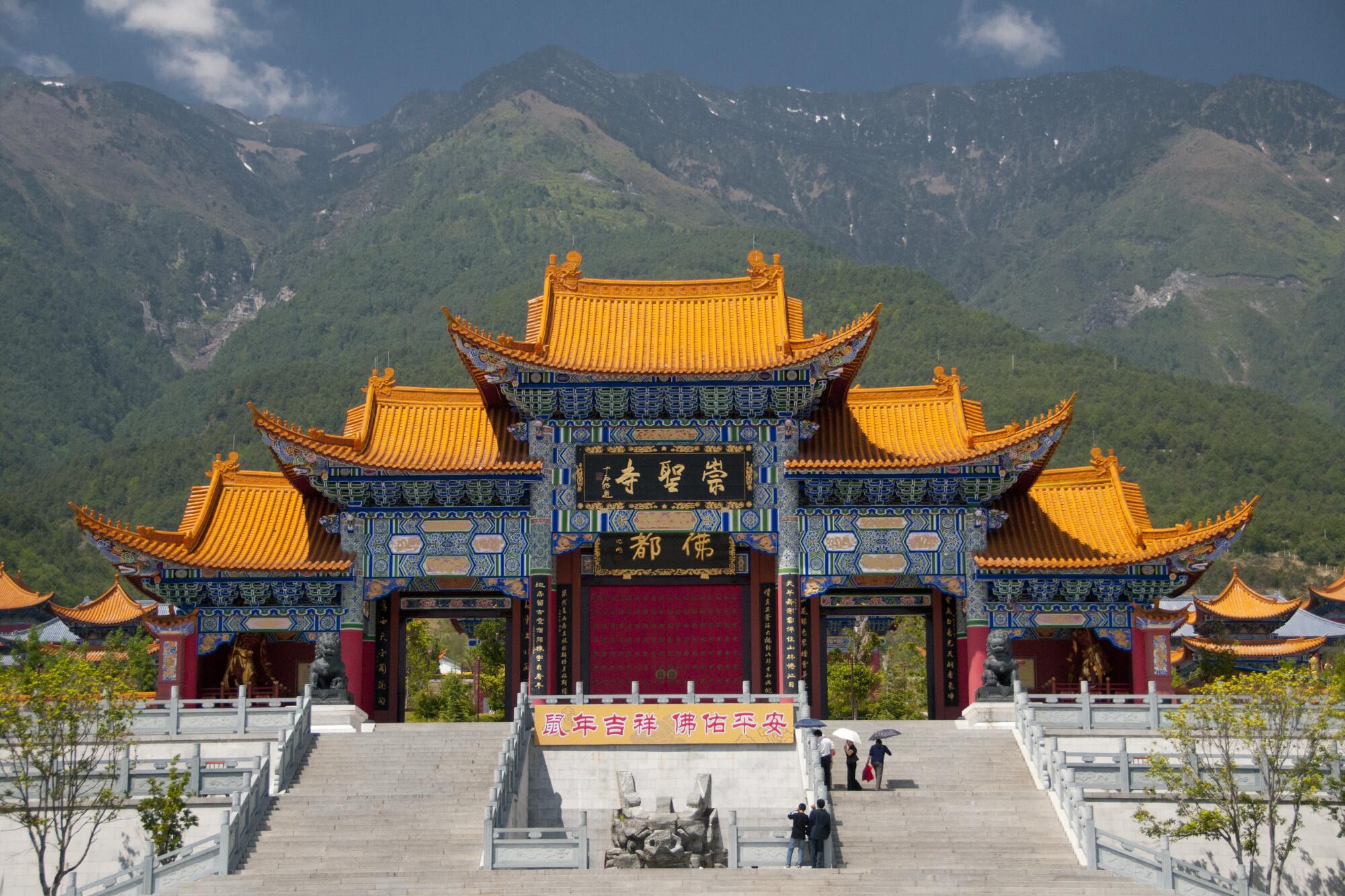
- Share via
Whenever John Wang, a 40-year-old Chinese tech entrepreneur, hears the song “Hotel California” by the Eagles, he can’t help but sing along — with one minor modification. During the chorus, Wang and his friends like to belt out their welcomes to the “Hotel Dalifornia” instead.
The renaming of the titular resort is an ode to Dali, a city of 774,000 in southwestern China that over the last three years has become a refuge for digital nomads and burned-out workers seeking a reprieve from harsh pandemic controls and the grind of big-city life. The atmosphere there has invited comparisons to California — or at least to the California that exists in the popular Chinese imagination.
Nestled between mountains and lakes in Yunnan province, Dali is a former capital of an independent kingdom, and its cultural significance dates to the 8th century. Pagodas, temples and an ancient city — known as Old Town — have been preserved for hundreds of years, and the allure of the area is reinforced by views of Cangshan Mountain to the west and Erhai Lake to the east.
Its natural landscapes and historic architecture have made it a haven for backpackers and other tourists since the 1980s. The city’s early popularity among international visitors and the cultivation of cannabis in Yunnan province, which spurred the local marijuana market until authorities began cracking down in the 2000s, have contributed to an anything-goes reputation.
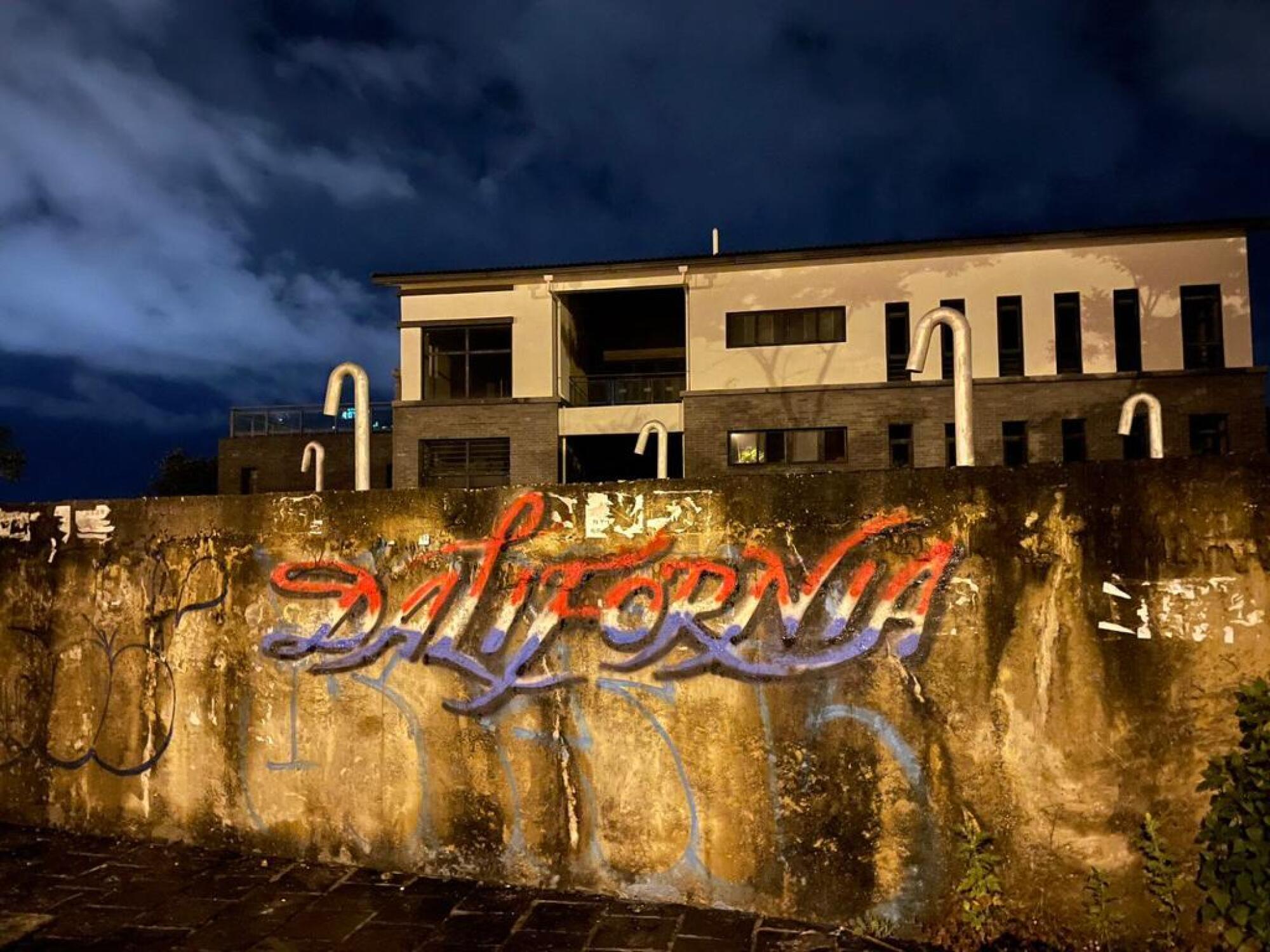
That, combined with a burgeoning tech community and a mild climate, inspired the “Dalifornia” nickname among locals.
Wang, who first heard the tribute to the Golden State after he moved to Dali in 2020, liked it so much that he recruited two friends to help spray paint “Dalifornia” on an abandoned wall in town.
“When COVID arrived, it was like the whole world changed,” said Wang, who shuttered his start-up in Shenzhen before he relocated. “Dali was like the last bastion of idealists, where I felt like I could really breathe freely.”
:::
The enthusiasm for Dali is underpinned by a broader cultural rejection of the financial and societal pressures of major cities. Over the last few years, disillusionment has spread among Chinese workers as economic growth plateaued and advancement opportunities dwindled. The pandemic fueled that discontent.
Joyce Zhao, a 33-year-old jewelry designer, moved from Beijing to Dali in February with her husband and her pet corgi. She said the “chill” atmosphere there reminds her of California — she once visited San Francisco for a few days — but that she’s not used to encountering so many young people who don’t appear to care about work.
This story is part of our Global California project
Our correspondents are traveling the globe, sharing stories that examine the complex relationship between the West Coast and the rest of the world.
“In Beijing, wherever you go you’ll hear a thousand people striving, coming up with new ideas. But in the coffee shops and bars here, you’ll hear a thousand people not working, with the idea to tangping,” said Zhao, invoking a popular Chinese phrase for slacking that translates to “lying flat.”
The yearning to step out of the fast lane is reflected in the virality of “Meet Yourself,” a Chinese TV drama released in January that garnered billions of views in its first few months. In the 40-episode series, a burned-out career woman in Beijing resigns and moves to Dali, where she falls in love with another young professional, who abandoned his high-paying job to return home.
Zhao’s husband, a computer programmer from the U.S. whom she described as a “Dali super-fan,” paid for a streaming subscription just to see how the TV show depicted the city. Zhao and her mother, who prefer spy thrillers, watched about a dozen episodes with him before calling it quits. Still, the positive reception inspired a new crush of tourists to fill Dali’s shops and streets once pandemic restrictions were dropped. According to Chinese media, visitors over Chinese New Year reached 4.24 million, up 219% from the previous year.
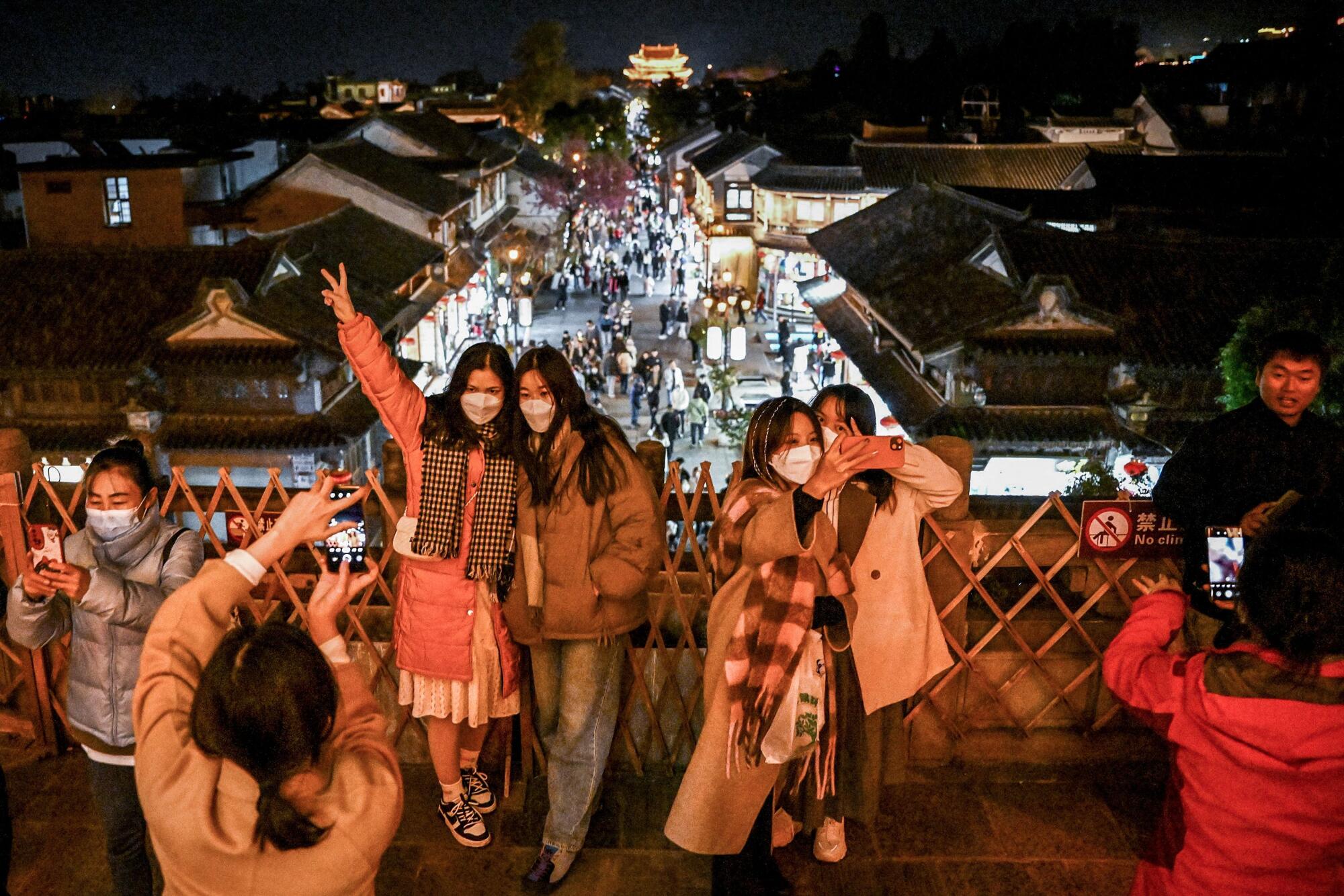
According to Zhang Shijian, the owner of a real estate agency in Dali, inquiries to rent or buy a place doubled to five or six per day after pandemic restrictions were lifted in December. Many of those were young people looking to “lie flat” as urban youth unemployment has reached record highs, he said.
Chen Qin, a Chinese official from one of the locations where “Meet Yourself” was filmed, told Chinese media that the TV show and efforts to promote rural development have helped boost local employment and entrepreneurship. “The Chinese countryside has become a place of healing for those living and working in big cities,” Chen said.
A request to Dali’s media office for comment on the city’s popularity and its economy was referred to the Yunnan office of foreign affairs, which didn’t respond to a list of questions by the time of publication.
:::
Dali has also become a hot spot for remote work. In the first six months of 2022, searches for “digital nomad” on Xiaohongshu, China’s Instagram-like platform, surged by 650%, with posts on how to become one viewed more than 22 million times.
Wang Ruoxi, a 19-year-old student in Guangzhou, said she was drawn to the city by the memory of its beautiful scenery from a previous vacation — and social media posts touting discounted lodging. After a month of living under blue skies and white clouds, seeing the lake and mountains every day, Wang was convinced she wanted to become a digital nomad too.
“Living in Dali was a valuable experience for me. It changed my plans for my future life,” she said.
But Ji Yanhong, a 22-year-old studying traditional Chinese medicine, came to a different conclusion after she fled a lockdown at her university in Guangzhou and spent a couple of months in Dali. While she enjoyed her remote study, it reaffirmed her interest in big cities like Guangzhou— which has a population of more than 18 million — and the career contacts they could provide.
“For me Dali is not a destination, but more like a rest stop,” Ji said. “It will make people lose their fighting spirit.”
As China’s economy slows, more young people are exploring nomadic lifestyles in a rebuke of societal pressure to work hard, buy a home, start a family.
The influx of digital nomads and tech workers in Dali has given rise to a local community dedicated to Web3, a popular buzzword for websites run on blockchain technology, the foundation for cryptocurrency. Last year, local organizers put together a Web3 conference called “The Summer of Tile Cats,” a reference to the gargoyle-like feline statues that decorate clay rooftops around the city.
Zhao Huiling, a 33-year-old cryptocurrency venture capitalist in Shanghai, fell in love with Dali after attending the conference in August. She and her husband moved there a month later to open a Mediterranean-inspired restaurant they christened Dalia. Work spaces for digital nomads have since cropped up around town, including one down the street from the restaurant called Web3 Playground.
While she’s excited to hear residents exchanging blockchain and crypto ideas, Zhao said she has reservations about the recent hype and whether the wave of new arrivals will overwhelm the city’s resources, particularly after witnessing the congestion of the Chinese New Year rush.
“I feel like Dali is climbing up to a tipping point,” she said. “I just hope that every project or capital or person that comes to Dali has the right intention and is willing to grow sustainably.”
Shi Beichen, a 38-year-old brand consultant who traveled to Dali in March of last year, has noticed rent and grocery prices rising since he decided to settle there permanently. But he still hopes that more remote workers and freelancers will come to develop local tech hubs and businesses. A friend who runs a business school for women also relocated to Dali in January, along with the rest of her 30-some person team from Shenzhen, which is now housed in seven living compounds.
“Dali actually needs these people to come,” Shi said. “Because aside from farming and tourism, Dali doesn’t have other industries.”
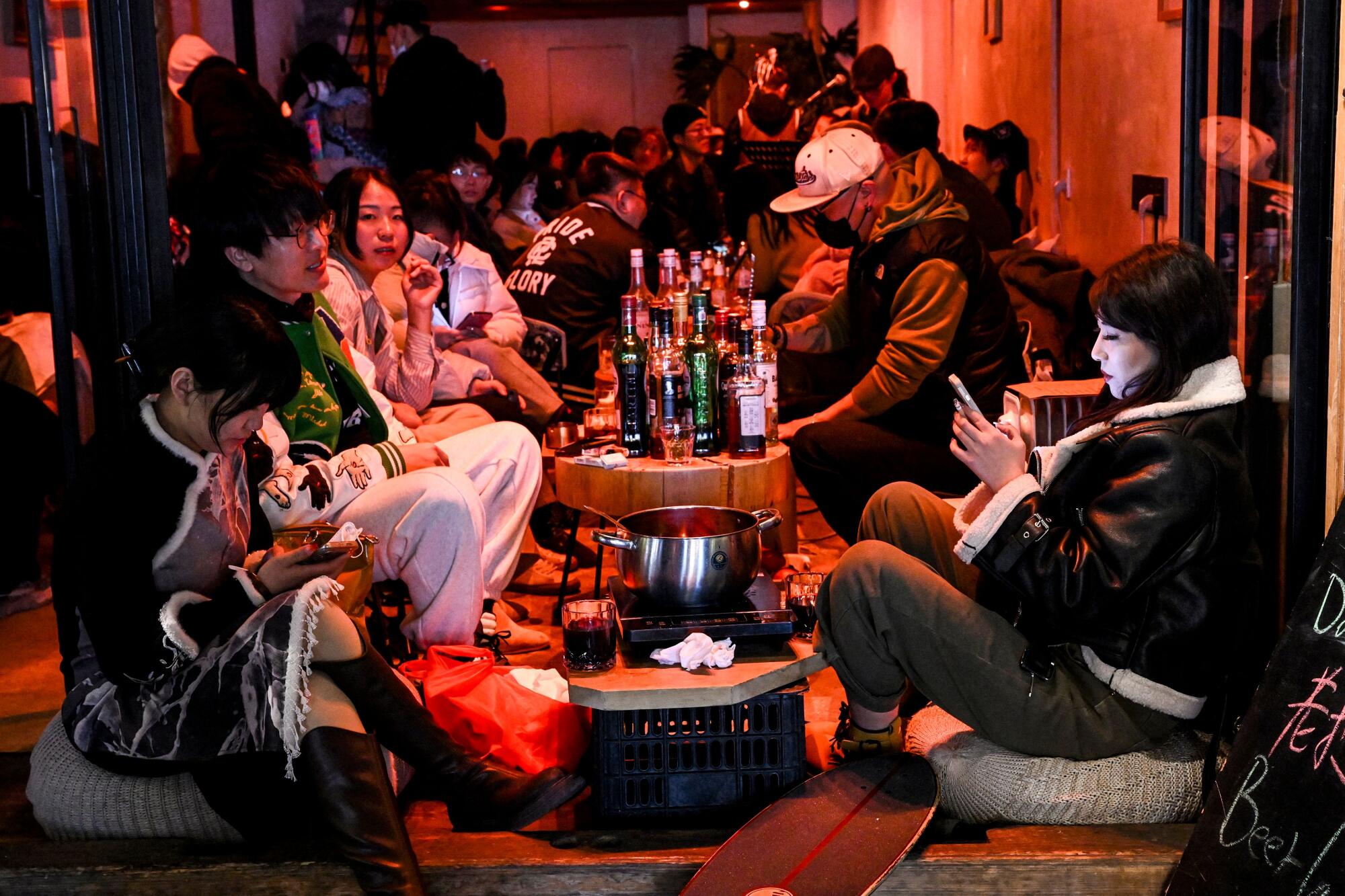
For Shi, the local events and carefree campfires where people sing, chat and drink beer mimic the energy of Silicon Valley’s early days, albeit on a much smaller scale. But even Dali’s relative openness might not be enough to reassure its newest arrivals that its innovative spirit will be allowed to continue.
Political ideology has tightened under Chinese President Xi Jinping; even business titans and flourishing industries have been targeted for not aligning with the Communist Party’s interests. In 2020, a regulatory crackdown that started with Alibaba founder Jack Ma’s empire spread to the broader tech sector. Chinese officials also banned crypto mining and transactions in 2021, fearing risks to the country’s financial stability.
As financing dries up and debts come due, a cash crunch leaves thousands of homes unfinished, in a crisis with implications for the global economy.
That skepticism toward unproven technologies ultimately curtailed the Web3 conference last year, according to John Wang, the graffiti artist and one of the event organizers. Local officials disbanded the event in the name of epidemic prevention, but as participants met in smaller venues around town, police still checked in on gatherings for signs of crypto and illegal drugs, he said.
Some of his friends’ Web3 ventures were investigated, and their mobile phones temporarily confiscated, Wang said. The month after the conference, he left Dali for Chiang Mai, Thailand, another popular digital nomad destination. He has no immediate plans to return to China, and recently arranged for his dog to join him.
“A lot of people from big cities decided to come to Dali. Once there, they see Dali is great. The mountains, the water, the atmosphere is great. Like-minded people can find each other, right?” he said. “But then you see people doing health inspections and shutting down events. And you realize that Dali, in the end, isn’t ‘Dalifornia.’ ”
Yang is a Times staff writer and Shen is a special correspondent.
As a bloody battle for supremacy grips Sudan, the passports of thousands of people eager to escape the fighting languish in abandoned embassies.
More to Read
Sign up for Essential California
The most important California stories and recommendations in your inbox every morning.
You may occasionally receive promotional content from the Los Angeles Times.

